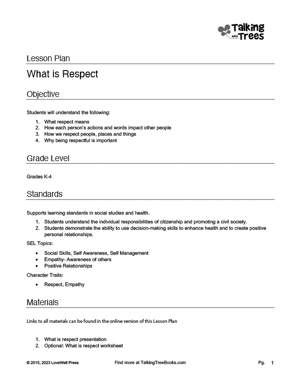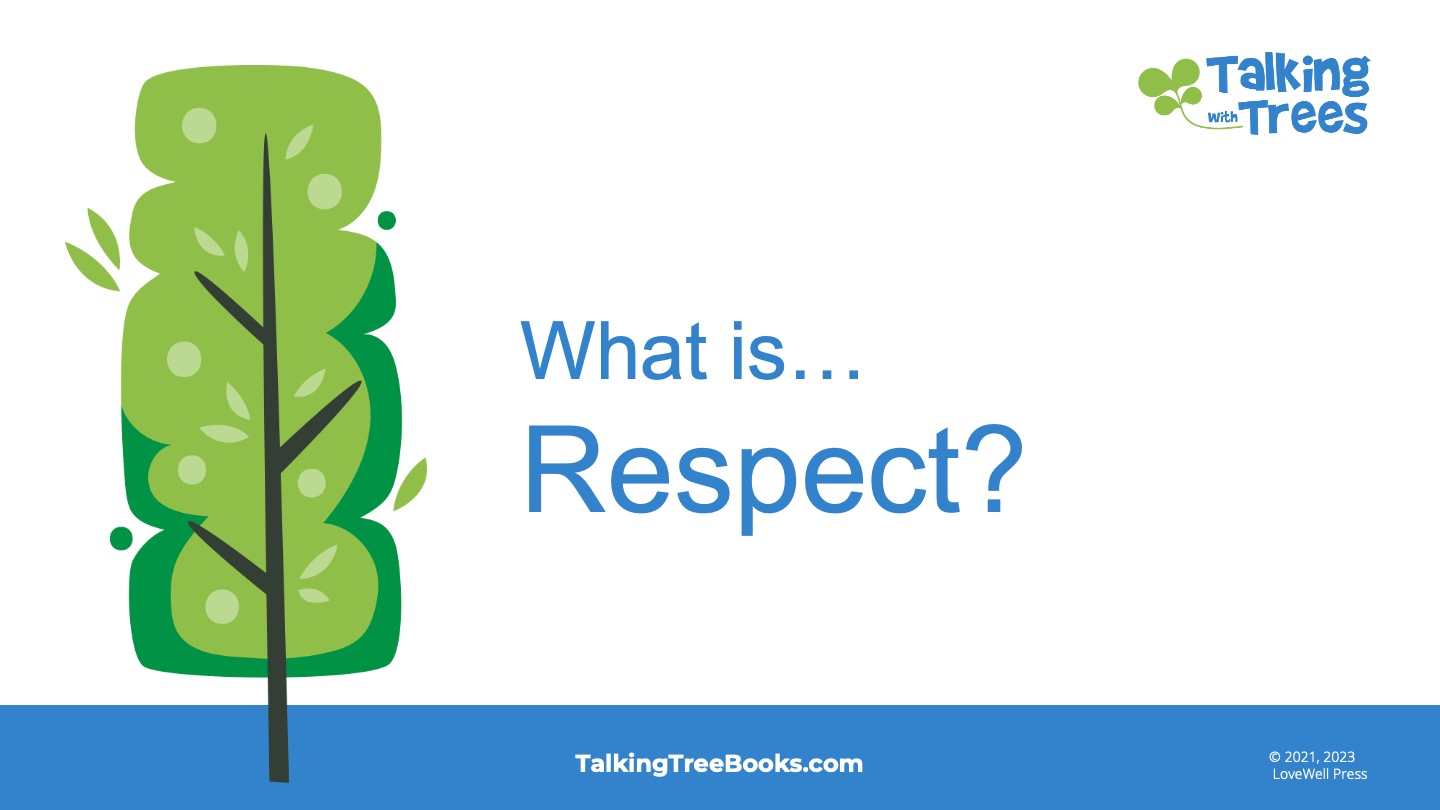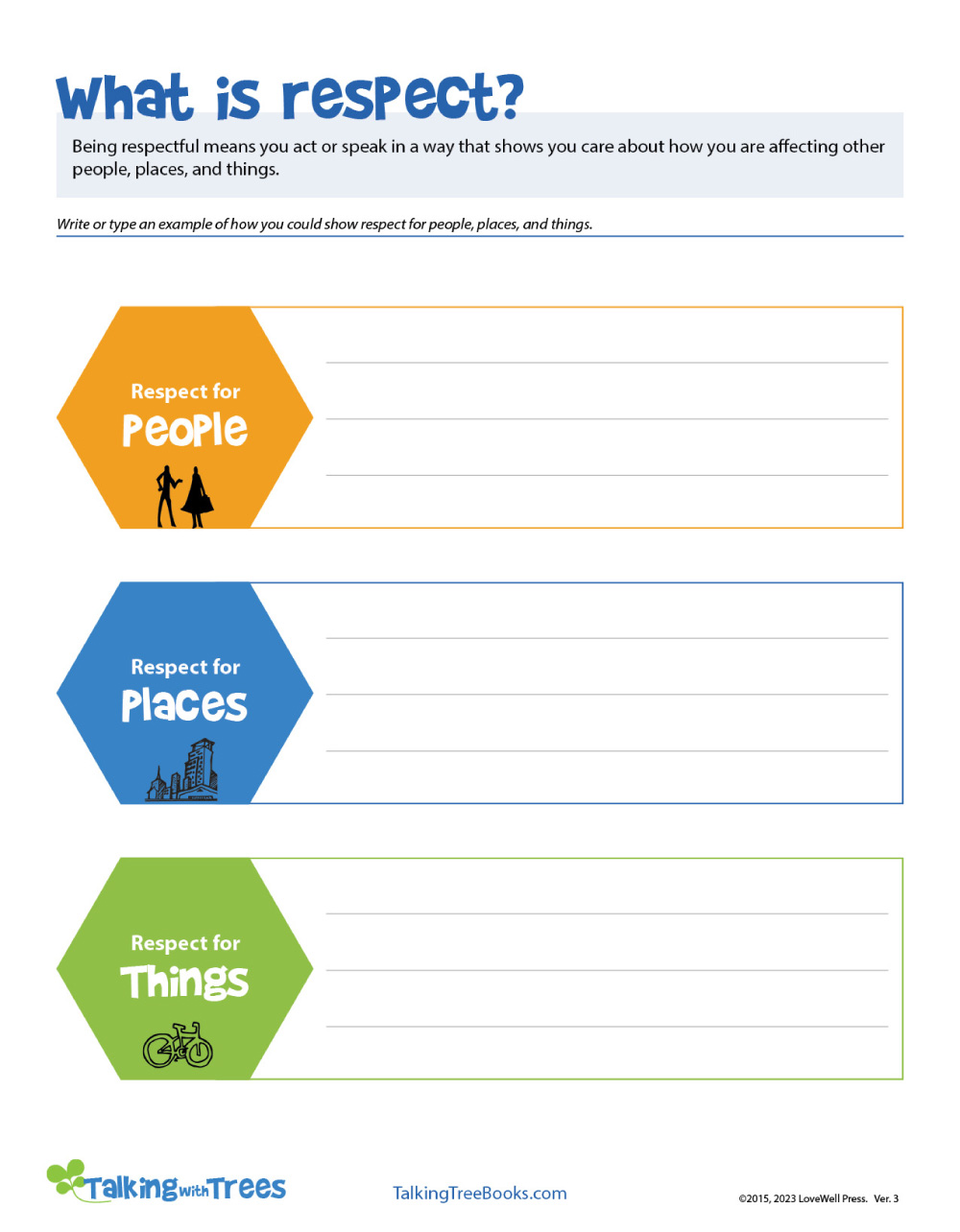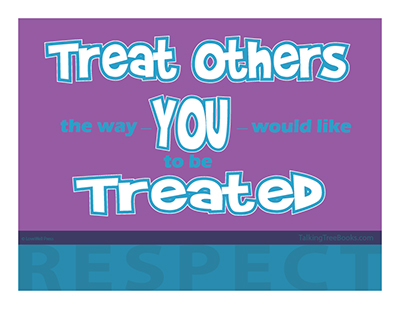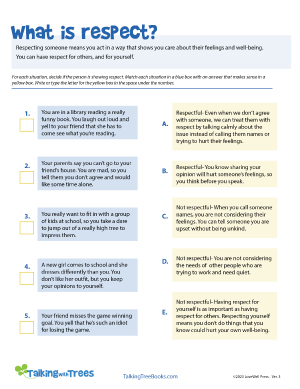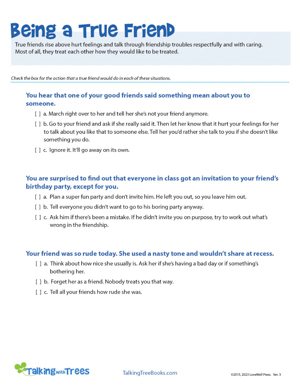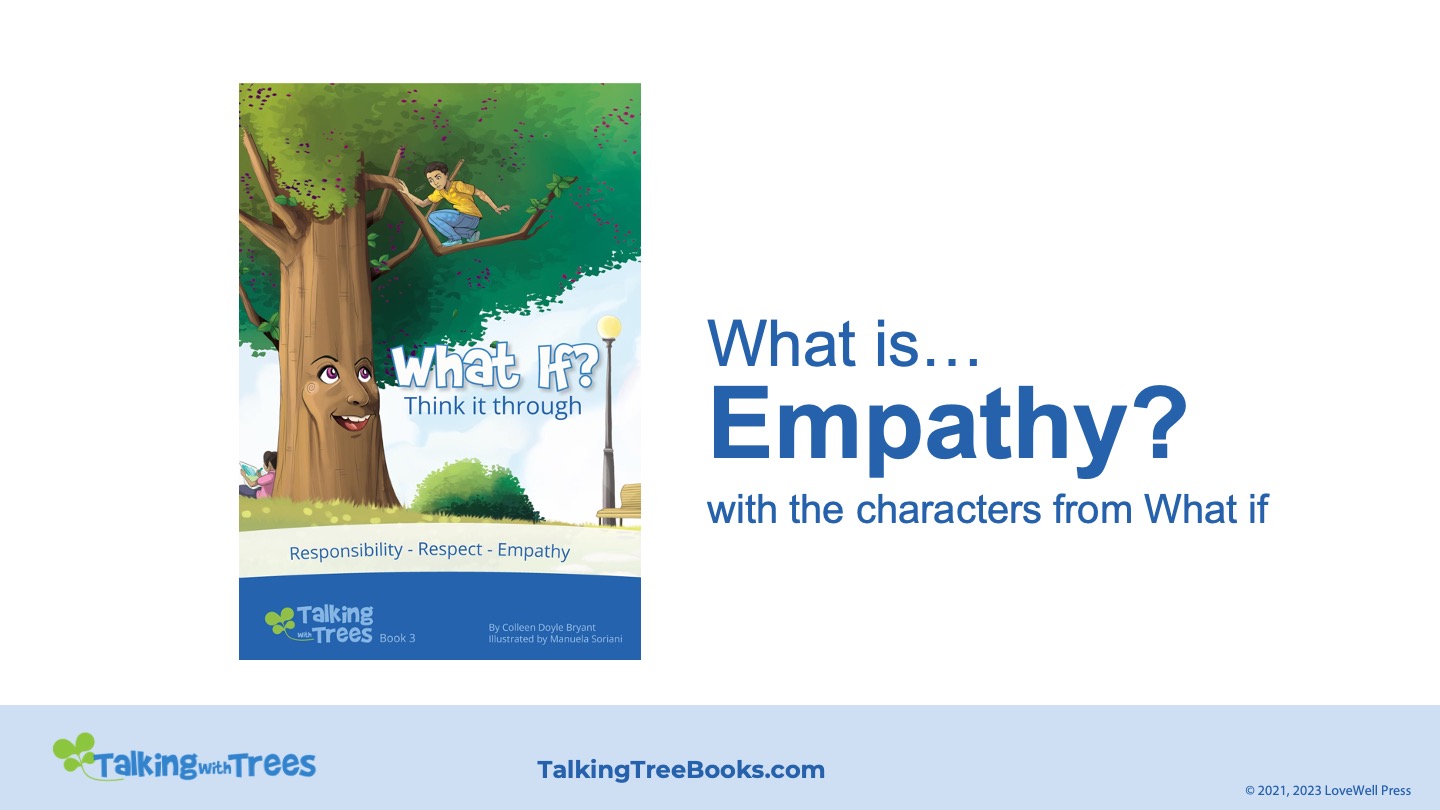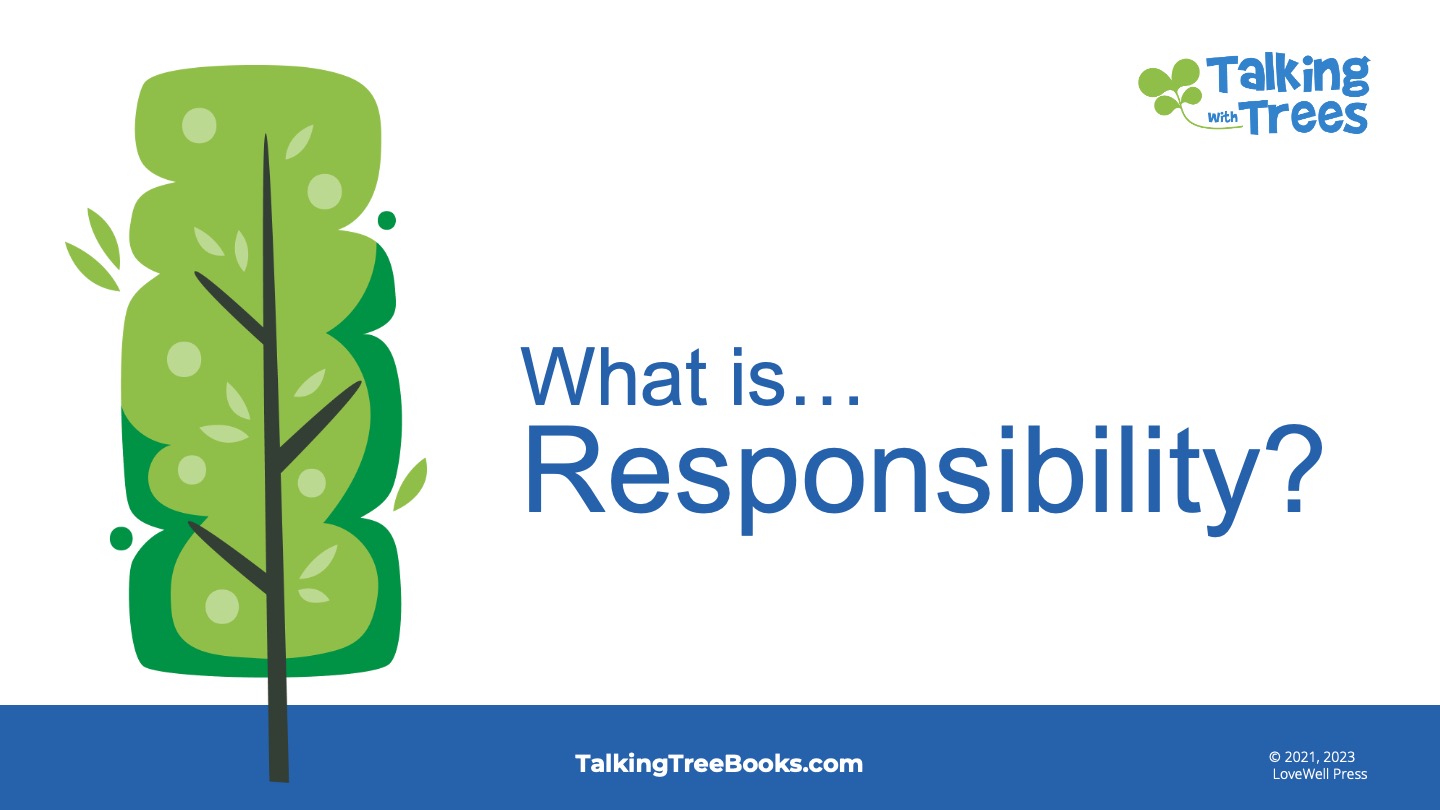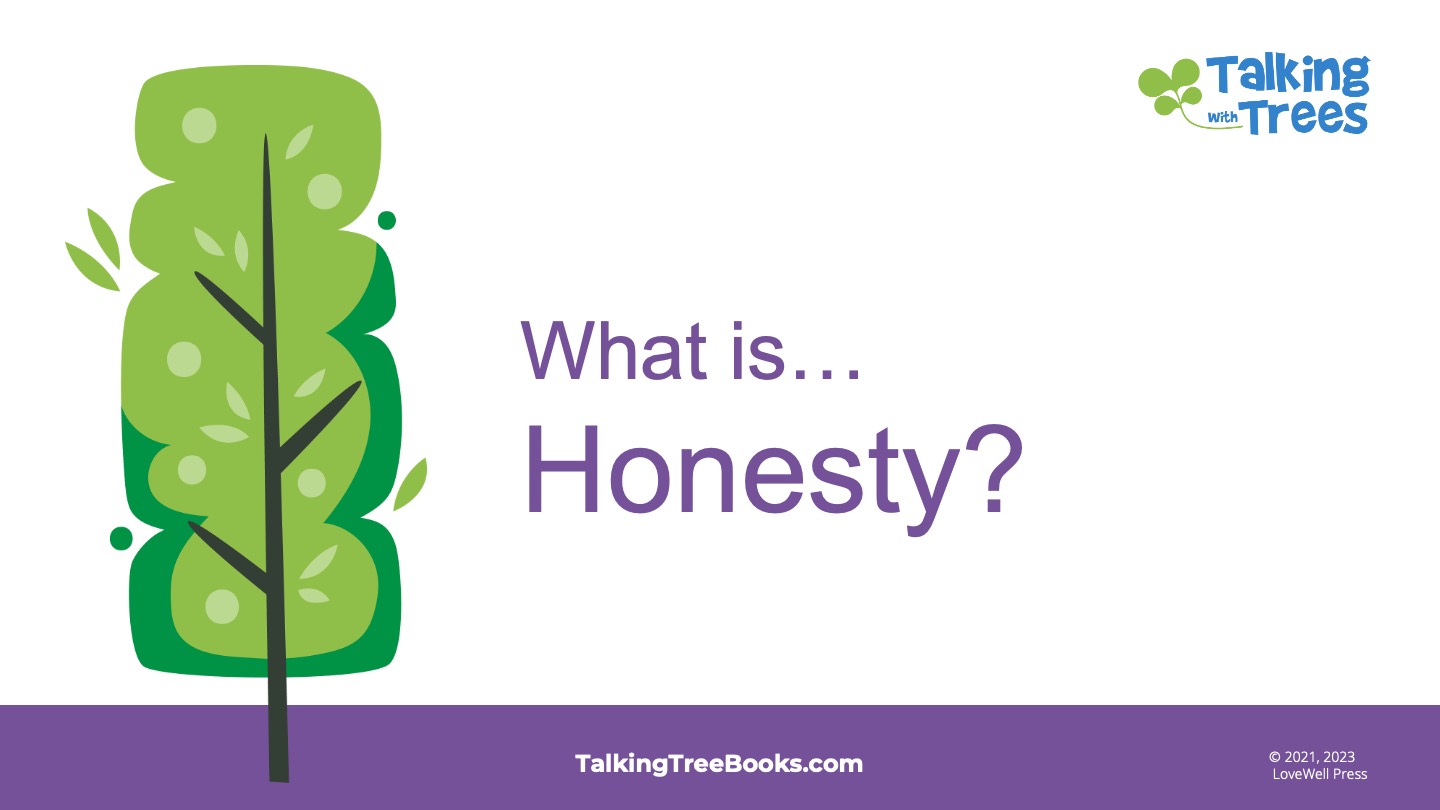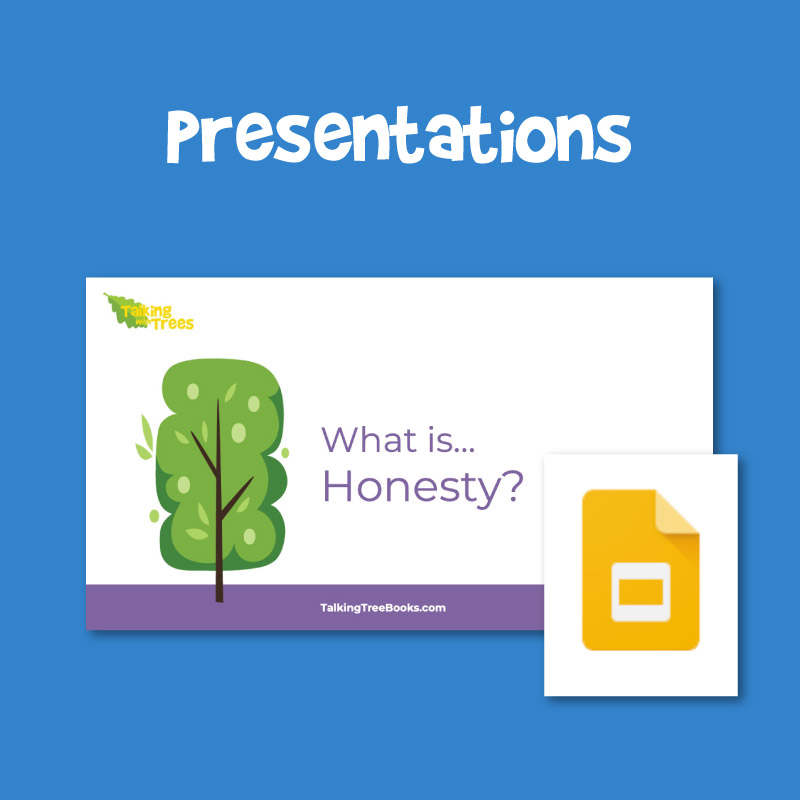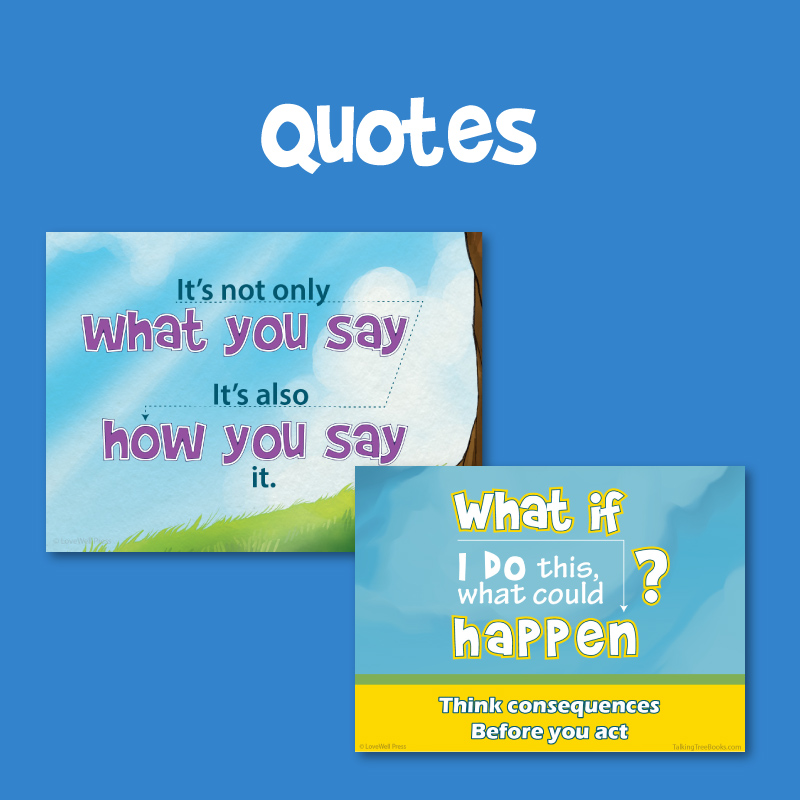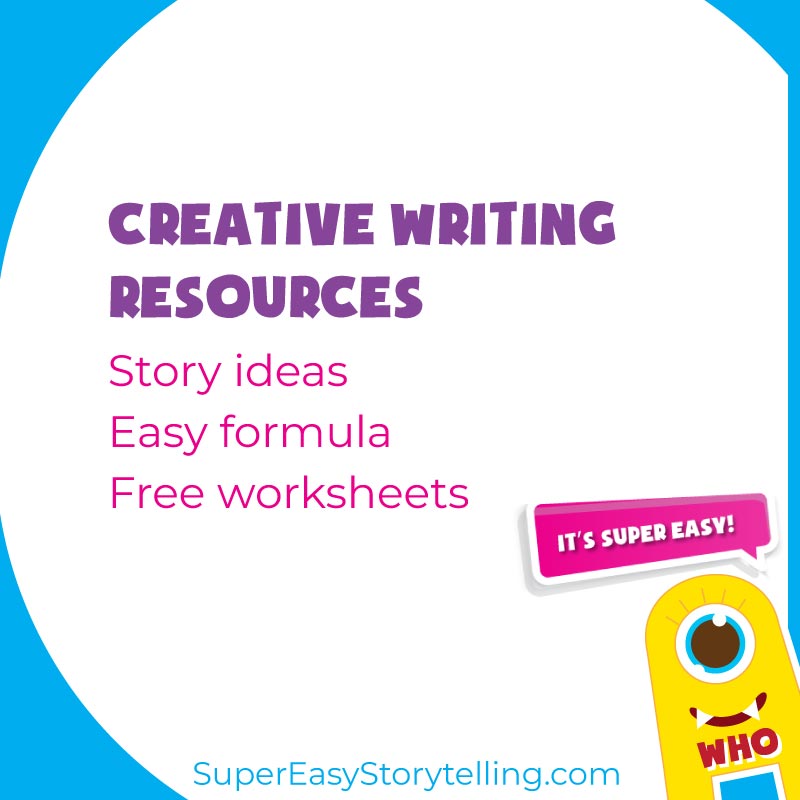Respect Lesson Plan
Character Ed / SEL Lesson Plan for grades K-4
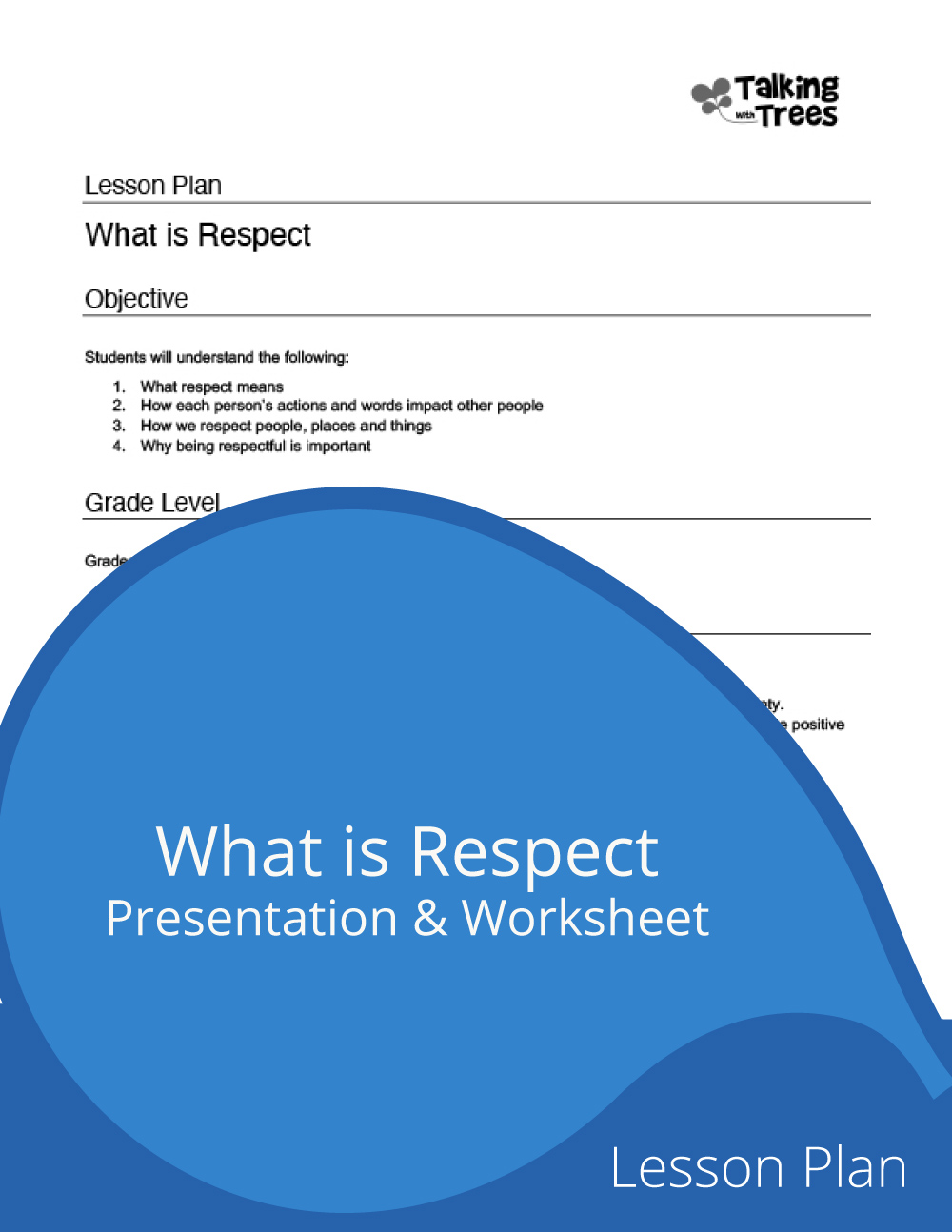
What is respect?
Objective
Using a prepared PowerPoint / Google Slides Presentation, students will understand the following:
- What respect means
- How each person’s actions and words impact other people
- How we respect people, places and things
- Why being respectful is important
Grade Level
K - 4
Character / SEL Topics
- Self Awareness, Self Management
- Empathy, awareness of others
- Positive relationships
- Decision Making, Actions and Consequences
- Traits: Respect, Empathy, Caring
Download Resources
Our PDFs, Powerpoints, and Google slides are free to print or share for non-commercial use, meaning you are welcome to link to our website for educational purposes, add PDFs, PPTs, Google Slides to your Google classroom or print for in-class use.
Vocabulary
Respect-Respect means you consider how your words and actions will affect other people, places and things.
Procedures
Download the Respect Presentation. These talking point are included in the speakers notes of the presentation. This Lesson Plan is also available as a printable PDF.
Discuss how each person’s words and actions impact others
At its most basic level, respect is about caring how one’s actions and words impact others. Each thing we do or say can cause a reaction as it bumps into other people around us.
Demonstrate Cause and Effect
Discuss ways our words and actions can impact other people? What are some things that can happen when someone:
- Cuts in line- Others will feel angry or upset.
- Saying please and thank you- Others may feel happy or good.
- Sitting on your friend’s phone on purpose- They may get angry, especially if you break it.
- Teasing people- The person being teased may feel sad, hurt, picked on.
- Listening when someone’s talking- Others may feel happy, comfortable or appreciated.
- Writing on a public monument- The monument will be permanently damaged and people will be upset.
What are respectful actions?
Respectful actions take into account how saying the words or taking actions will impact others.
- If an action shows kindness and consideration for others, it is usually respectful.
- If an action unnecessarily or selfishly causes others harm, it is usually disrespectful.
Note: Sometimes an action causes harm, but it’s not unnecessary or selfish. For instance, if a student does poorly on an assignment and a teacher gives them a poor grade, it’s not disrespect. It’s a necessary consequence to the student’s actions. See the What is Responsibility Presentation for more on actions and consequences.
What are we respectful of?
Respect isn’t just about how we treat people. We can also show respect for people, places and things.
Respect for People
Showing respect for other people means you think about how your words and actions may impact them. You choose to do things that show you are considerate. Even if you disagree, you can interact with respect.
Some ways we show respect for people:
- Considering other’s needs and feelings- Showing empathy, or putting yourself in someone else’s shoes and adjusting how you act based on their perspective. This includes actions like choosing kind words or a nice tone of voice. Sharing. Not teasing or bullying.
- Listening and talking when it’s your turn- Listening without interrupting, giving others a chance to speak and be heard, not talking when the teacher is talking so you aren’t preventing other people from learning.
- Being polite and manners- Social politeness is all about being aware of how your actions impact other people’s feelings and their ability to live in the same space you do.
- Accepting differences, disagreeing with respect- We are all unique in our own way. Accepting differences, even if we don’t agree with them, is a way of treating people the way we would like to be treated. Being respectful doesn’t mean you have to like everyone, agree with everyone, or want to play with everyone. But it does mean that when you disagree or don’t want to be friends, you consider other’s feelings when you talk to them about it.
- Posting online with care- Treat others with the same respect and courtesy online that you would treat them in person.
Respect for Places
Showing respect for places means you think about how your actions can affect the place itself or other people’s ability to enjoy it.
Some ways we show respect for places:
- Being quiet or using an appropriate volume and behavior- Imagine trying to learn if everyone yelled in a library. Imagine a movie theater where everyone was throwing popcorn and talking. It would be distracting to other people trying to enjoy the movie, and it would be very rude to the people who clean the theater later.
- Taking care not to damage places- Graffiti, etching your name in trees, climbing on monuments or art installations, breaking windows… these are all examples of someone selfishly and unnecessarily having a negative impact on a place that hurts other people’s ability to enjoy it, may cost money to fix, or damages the place itself.
- Putting trash where it belongs- Littering damages the place and hurts other people’s ability to enjoy it.
- Sharing the space with others- When in public places, being respectful means we ensure others can enjoy the space too. For example we take turns on the play structures, only play games with balls where it won’t accidentally fly into someone/something and hurt them.
- Dressing according to the traditions of the place- In places of worship, people are often expected to dress according to traditions (covering shoulders or heads). In some buildings or during some proceedings people are expected to dress more formally (court room, wedding, etc.)
Respect for Things
Showing respect for things means you think about how your actions may affect the object itself or other people who need the object or would have to replace /repair the object.
Some ways we show respect for things:
- Taking care not to damage things- Using something or being careless with something may break it. We take care of things so we can continue to enjoy them. We respect school resources, other people’s toys, electronics, etc.
- Sharing resources- Being respectful means you consider how your use of something impacts others. Use only as much as you need, or as much as is fair considering how much others need.
- Putting things back where they belong- Taking care of things includes where we store them and making sure others can find them later.
- Considering who you impact if you harm a thing- Will someone need to pay to replace or repair it? Will breaking or taking something hurt someone’s ability to participate? Is the item something special that can’t easily be replaced?
How to know if it’s respectful
Follow these few simple steps to help you decide if words or actions are respectful:
- How will my actions impact people, places, or things?
- Am I helping or hurting?
- Would I want to be treated that way?
Is this respectful
Using the examples form earlier, discuss why the action is respectful of disrespectful:
- Cuts in line- It’s disrespectful because it shows a lack of care for others’ feelings about what’s fair.
- Saying please and thank you- It’s respectful to show people courtesy.
- Sitting on your friend’s phone- It’s disrespectful because you could break their phone and that would cause them harm (money, ability to participate).
- Teasing people- It’s disrespectful when you unnecessarily and selfishly make someone feel bad for your amusement.
- Listening when someone’s talking- It’s respectful as it shows you care that they want to communicate something to you.
- Writing your name on a monument- It’s disrespectful because it harms the monument and it harms other’s ability to enjoy it.
Why is respect important?
We all live together in a society. We share spaces and resources. We all need each other to live the lives we want to live (how do you learn without a teacher, get a new shirt without a shopkeeper, have trash removed without a garbage man, use a video game without an inventor?) To live together with a degree of trust and safety, we need to find ways to get along. We have certain rules we agree to as a society to make that possible. Respect is one of the key rules we use to be sure we can get along and live with trust and safety.
Imagine a world where people were nasty and didn’t care if they hurt others? Would it be pleasant? Would it be safe? We must consider how we impact each other so we can live well together.
What is respect?
Respect means you consider how your words and actions will affect other people, places and things. Remember to treat others the way you would like to be treated.
Showing Respect Worksheet
Students can write or type examples of how to show respect for people, places, and things in the Showing Respect Worksheet.

